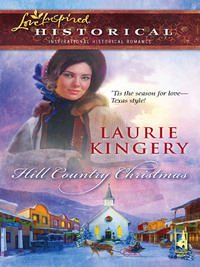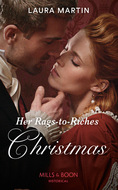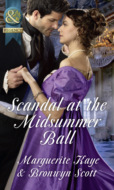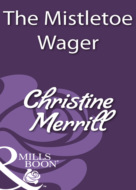Kitab fayl olaraq yüklənə bilməz, yalnız mobil tətbiq və ya onlayn olaraq veb saytımızda oxuna bilər.
Kitabı oxu: «Hill Country Christmas»
“Are you Miss Delia Keller?”
She nodded. “Who are you?”
“My name’s Tucker—Jude Tucker, and I’m here because your father wanted me to come see you.”
Delia could hardly believe her ears. “My father? You know my father? When will he be here? Oh, I knew he’d be back some day!”
A cloud seemed to pass over his face. “He…he’s not coming, Miss Keller. I’m sorry to have to tell you he’s dead.”
Delia felt the earth shift beneath her feet and she would have fallen if the stranger hadn’t steadied her. “What…what happened to my father?” she asked.
“He died mining silver out in Nevada. There was a mine collapse….”
“Thank you for coming to tell me about my father’s death, Mr. Tucker.”
“But I didn’t travel all this way just to inform you of his death. I came to bring you something. You’re his only living heir, after all.”
“Heir?”
“Well, I suppose heiress would be the proper word. Your father died a rich man, Miss Keller. And now all his wealth is yours.”
MILLS & BOON
Before you start reading, why not sign up?
Thank you for downloading this Mills & Boon book. If you want to hear about exclusive discounts, special offers and competitions, sign up to our email newsletter today!
Or simply visit
Mills & Boon emails are completely free to receive and you can unsubscribe at any time via the link in any email we send you.
LAURIE KINGERY
makes her home in central Ohio where she is a “Texan-in-exile.” Formerly writing as Laurie Grant for Harlequin Historicals and other publishers, she is an author of sixteen previous books. She was the winner of the 1994 Readers’ Choice Award in the short historical category, and was nominated for Best First Medieval and Career Achievement in Western Historical Romance by Romantic Times BOOKreviews. When not writing her historicals, she loves to travel, read, read her e-mails and write her blog on www.lauriekingery.com.
Laurie Kingery
Hill Country Christmas
Delight thyself also in the Lord; and he shall give thee the desires of thine heart.
—Psalms 37:4
To the beautiful Hill Country of Texas,
the place my soul feels most at home this side
of Heaven, and to all my relatives in Texas,
especially Aunt Joann.
Contents
Chapter One
Chapter Two
Chapter Three
Chapter Four
Chapter Five
Chapter Six
Chapter Seven
Chapter Eight
Chapter Nine
Chapter Ten
Chapter Eleven
Chapter Twelve
Chapter Thirteen
Chapter Fourteen
Chapter Fifteen
Chapter Sixteen
Chapter Seventeen
Chapter Eighteen
Chapter Nineteen
Chapter Twenty
Chapter Twenty-One
Chapter Twenty-Two
Chapter Twenty-Three
Chapter Twenty-Four
Chapter Twenty-Five
Chapter Twenty-Six
Chapter Twenty-Seven
Chapter Twenty-Eight
Epilogue
Questions for Discussion
Chapter One
Llano Crossing, Texas—August 1867
“He was a good man, Miss Delia. He’s certainly in the arms of Jesus now.”
“God rest his soul.”
“God bless you in your time of sorrow, Miss Delia.”
The hillside that had been covered in the golden glory of a Texas spring when Reverend McKinney had begun to fade—primroses and coreopsis, gaillardia and red-centered Indian blanket, punctuated here and there by bluebonnets lingering from the month before—was now, after the summer sun had done its work, sere and brown. It seemed a fitting backdrop for the unrelieved black garments of the figures in the valley who stood around the deep rectangular hole into which a coffin had just been lowered.
Sorrow didn’t begin to name the endless depth of Delia’s grief. Her grandpa had been the only element of stability she had experienced in her eighteen years of life, and now he was gone.
Another voice intruded on her thoughts. “I’m sorry for your loss, Miss Delia. If you need anything, you have but to let me or any of my family know. Reverend McKinney was a pillar of this community, and we would not want his granddaughter to be in need.”
Under the black brim of her bonnet, Delia Keller raised her eyes to the speaker. “Thank you, Charles. I appreciate it.” If she had hoped for more from the mayor’s son, she made sure her face did not give her away. She didn’t want Charles Ladley’s pity, if that was all she could have from him.
The tight starched neckline of her borrowed bombazine mourning dress threatened to choke her.
Oh, Heavenly Father, what am I to do now?
A few of the ladies began to drift away from the gravestones toward the makeshift tables laden with covered baskets that were spread out under the live oak trees between the small church and the cemetery. Soon, Delia knew, they would have a hearty dinner spread out for those who had attended the funeral—ham and fried chicken, black-eyed peas, freshly baked biscuits, chocolate cake and pecan pralines. There would be pitchers of lemonade and cold tea. As the chief mourner, Delia would be expected to partake, sample and praise each lady’s culinary offering.
The thought of putting so much as a crumb in her mouth made nausea roil in her stomach. The noon heat beat down on her head through her bonnet. She couldn’t do it.
She’d thought everyone had left her side and she was alone at the grave site, but now Delia felt a gentle touch on her wrist. “Miss Keller, are you all right?”
It was Reverend Calhoun from Mason, who had kindly come to conduct the funeral, since Llano Crossing was now preacherless.
She looked away from the concern in his old eyes, afraid she would dissolve into tears but knowing it was safe to confide in him.
“What am I going to do, Reverend Calhoun? My whole life was taking care of my grandpa.”
He gave her an understanding smile. “You needn’t decide that today, my dear,” he reminded her. “You’ve suffered a loss, a grievous loss, and it’ll take a while to find your feet. But the Lord will show you a way.”
Delia blinked, wiping away a tear that managed to escape from her eyes. She had no patience with platitudes this morning. “The town will be finding a new preacher, and he’ll need to live in the parsonage—where am I to go? I have no money, no employment…” No beau, she added to herself. She wouldn’t be going to live in the beautiful white house Charles Ladley would build someday for his bride, and the worst thing was, she didn’t even know why not.
“The Lord will reveal all that to you, Miss Keller,” the preacher assured her, confidence mingled with compassion in his deep, resonant voice, “in the fullness of time. He takes care of the birds in the air and the lilies of the field, you know. Now come—it looks as if the good ladies of Llano Crossing have prepared a nice meal for you.” Nodding toward the tables under the trees, he said, “Why don’t we—”
“I…I don’t think I can stay for it,” she said quickly, keeping her gaze on the toes of her high-button boots, but away from the grave. “I just…I just want to go back to the parsonage and lie down.” While I still can lie down there—and try to imagine what I’m going to do.
“Nonsense, child, you need to put some food in your stomach, and take heart from the others who loved Reverend McKinney,” urged his wife, a comfortable-looking gray-haired woman who had returned to her husband’s side. “You’ll feel better after you’ve eaten a bite, I’m sure.”
Delia did not want to argue with her, and fortunately the visiting preacher made it unnecessary.
“Mrs. Calhoun, can’t you see the girl is pale as a wilted primrose? I’m sure she knows what’s best for her. There’s bound to be plenty of food left, and we can bring her a plateful to tempt her appetite after she’s had a nap. Miss Delia, we’ll see you later,” Reverend Calhoun said with finality. A look passed between husband and wife.
“All right, Mr. Calhoun, I’ll walk with her,” Mrs. Calhoun said, to Delia’s dismay. “You go say the blessing so everyone can start eating. I’ll be back in just a few minutes.”
Placing an arm around Delia’s waist, as if she feared the girl might swoon without it, Mrs. Calhoun started forward.
The parsonage sat some fifty yards down the road from the church. If she wasn’t allowed to walk home by herself, Delia figured that at least, once there, she would insist she could find her way to her bedroom without any help. She would be alone in minutes.
They had nearly reached the gate that let out onto the dusty road when they spotted the horse and rider trotting toward them from the west, trailed by a swirl of dust.
“If he’s coming for the funeral, he’s a little late,” Mrs. Calhoun said with a sniff.
“Oh, I don’t imagine he is,” Delia said. She thought everyone who had ever attended the Llano Crossing Church had been present for the funeral service. The church had been filled to bursting, with folks overflowing out onto the steps. “Probably just another cowboy coming into town to enjoy Saturday night.”
Mrs. Calhoun pursed her mouth. “And tomorrow all he’ll have is an aching head to show for his month’s wages.”
As the rider drew nearer, however, Delia began to doubt he’d come from any of the many nearby ranches. In back of the saddle were bulging saddlebags, a blanket roll and a rifle. The silver buckskin he rode was wet to his hocks, as if he’d just crossed the Llano at one of its deeper points upstream, rather than waiting to cross at the town that bore the name of the bridge that spanned the river.
He reined the horse to a walk a few yards away; then, as he reached them, he halted the horse with a soft whoa. He laid a finger on the broad brim of his hat in an automatic gesture.
“Ladies, is Llano Crossing up ahead?”
His voice was gravelly and rough, as if it had been unused for a long while. His eyes, which were studying her with a frankness she had never been subjected to, were the glacial gray-blue color of a wolf’s. She felt herself shiver as if the sudden chill breeze of a norther had blown upon her spine.
Out of the corner of her eye, Delia saw Mrs. Calhoun give a rigid nod. “Just around the bend in the road.”
“And would a traveler find a hotel there where he could pass the night?” he asked, without taking those wolfish eyes off Delia.
She saw Mrs. Calhoun stiffen even more before she replied, “He would, if he were a law-abiding, respectable sort.”
Delia saw the threat of a smile cross the stranger’s face like slow heat lightning. He looked as if he would ask something more of Delia, then apparently thought better of it. “Much obliged, ma’am,” he said, touching his hat brim yet again, his gaze drifting over to Mrs. Calhoun just long enough to be polite.
The corner of his mouth twitched as if it wanted to turn upward; then, as if noticing the somber hue of Delia’s black dress, it resumed its previous thin line as he nodded and touched the buckskin with his boot heel. “Ladies,” he murmured, and once he and the horse were a few yards from them, he nudged the horse into an easy lope.
Mrs. Calhoun sniffed again. “Well! He might have shown some respect.”
Delia glanced at her, surprised at the indignation in the woman’s voice. “He touched his hat.”
“I mean to our mourning, my dear! Why, he was staring at you like a wolf set loose in a sheep pen!”
Since a wolf was the very creature she had been reminded of also, Delia blinked in surprise. Mrs. Calhoun was probably expecting too much of the man, though, if she thought that the stranger would give a long, involved condolence speech merely because the two of them were dressed in black.
“A saddle tramp, I shouldn’t wonder,” Mrs. Calhoun muttered disapprovingly. “There are so many of them drifting through ever since the war. Like tumbleweeds.”
Delia was sure Mrs. Calhoun was right, but she didn’t want to encourage the woman to linger, so she remained silent as they reached the low, crumbling rock wall that separated the parsonage yard from the road.
“Thank you for your kindness, Mrs. Calhoun. I’ll be fine,” Delia said as she stepped onto the flower-bordered pathway that led up to the white frame house. “I’ll see you later.”
The preacher’s wife took the hint after giving Delia one last look of concern.
“All right, if you’re certain you don’t want someone to sit with you,” Mrs. Calhoun said uncertainly, but then she started walking briskly back in the direction they had come, as if afraid the other mourners would devour everything on the tables before she got back to them. She paused only long enough to call back over her shoulder, “Pastor Calhoun and I will be quiet as mice when we return, in case you’re still napping. Get some rest, dear.”
Delia was sure she wouldn’t so much as close her eyes, but at least she had freed herself from the suffocating, if well-meant, sympathy.
She was awakened sometime during the night by Reverend Calhoun’s sonorous snoring coming from her grandpa’s former room down the hall. Padding quietly to the kitchen at the back of the one-story frame house, she found that her visitors had been as good as their word and had left her a delicious supper of fried chicken, biscuits and pralines from the funeral dinner. She ate, and then waited for dawn, praying some answers about her future would arrive with the sun.
“I don’t feel right about leaving so soon,” Mrs. Calhoun fretted two days later, after they had break-fasted on eggs Delia had collected from her grandpa’s—she still thought of them as her grandpa’s—hens. “Why, this girl is a bereaved orphan! It isn’t decent to leave her like this, Mr. Calhoun!”
“I’m not actually an orphan, Mrs. Calhoun,” Delia informed her. “My father is traveling in the west. I’m sure he’ll be home one of these days soon.” She’d said these words so many times before. “If he’d known about Grandpa’s illness, he’d have been home already, I’m sure,” she added, hoping it sounded like she believed what she was saying.
Mrs. Calhoun, who’d been in the act of levering her bulk up from the chair, turned to her. “Now dear, I know that must be a comforting thought, but your neighbor, Mrs. Purvis, told me you and your grandpa had heard nothing from your father since he left! I’ll pray he returns home, but don’t you think he would have done so already if he was going to?” Her voice was so pityingly compassionate that Delia wanted to grind her teeth.
“Papa will be home someday,” she said. “I know he will. After Mama died, he got itchy feet, as Grandpa called it.”
“He could’ve gone to fight alongside our boys in gray,” Mrs. Calhoun said, disapproval plain on her face.
Delia didn’t bother to tell her that if her father had been inclined to be a soldier at all, he probably would’ve worn blue. Feelings about the War Between the States still ran high in these parts.
“He said he’d gotten married so young that he’d never had the chance to see the West. He promised he was going to be home just as soon as he struck it rich.”
She hated the way her voice quavered as she remembered the hurt she had felt as she watched him ride off seven years ago. Why was I not enough for you, Papa?
Mrs. Calhoun tsk-tsked. “‘For the love of money is the root of all evil,’” she quoted sententiously. She looked as if she was going to say something more.
“If I have not charity, love profiteth me nothing,” the old preacher paraphrased, giving his wife a quelling look before turning to Delia. “I pray your faith will soon be rewarded, child.”
Delia tried to assume a carefree expression. “I’ll be fine, Mr. and Mrs. Calhoun. Really, I will. If I need anything, the Purvises said just to ask.”
She wished the preacher and his wife had gone yesterday, but since yesterday was Sunday, Pastor Calhoun felt an obligation to conduct the regular worship service at the Llano Crossing Church. Who knew how long it would be before the town would have another preacher?
It had seemed so strange—wrong, even—for someone else to be standing in the pulpit in her grandpa’s place, speaking about God. Reverend Calhoun wasn’t a bad preacher, and he certainly knew his Bible, but he didn’t have Delia’s grandfather’s dry humor. Nor did he place his pocket watch on the pulpit as Reverend McKinney had done so he’d know when it was time to close. It had taken several pointed looks from a deacon before Reverend Calhoun had ceased his flow of oratory and said the benediction.
Afterward, of course, Mrs. Calhoun hadn’t felt right about traveling on the Sabbath, so Delia had been obliged to endure the woman’s well-meant but stifling clucking over her and insistence that she knew best what Delia ought to be doing at every moment for the rest of that endless day.
“Mrs. Calhoun, if we leave now we’ll be home before supper,” Preacher Calhoun said now, laying his napkin aside and rising from the table. “Miss Delia has assured us she will write if she needs anything, or better yet, have someone ride with her up the road to Mason for a long visit, won’t you, my dear?”
Delia assured them she would.
“Perhaps I should just help Delia with these dishes.” Mrs. Calhoun fretted, waving a plump hand over the crumbs of toast and yellow flecks of egg that adorned the plates. “It’s not Christian to eat and dash off like that, Mr. Calhoun.”
The preacher raised eyes Heavenward as if asking for patience. “And then you’ll say it’s too close to dinnertime. No, Mrs. Calhoun, we are leaving this very minute. Delia won’t mind. Goodbye, Delia, and thank you for your hospitality in this trying time. Please know I’ll be praying for you every day.”
“Thank you, Reverend Calhoun,” Delia said, keeping her eyes downcast lest his wife discern just how relieved she was that they were leaving. Having guests could be exhausting in the best of times. Now she was eager to be alone with her thoughts and not have the constant duty of being pleasant and hospitable.
She picked up the picnic basket she had packed with the remains of the ham, several slices of bread and some butter she’d wrapped in a cold, wet cloth, and she walked to the door before Mrs. Calhoun could think of any further reason to dally.
Chapter Two
Reverend Calhoun’s fondness for sweet tea had left Delia with only an inch or two of sugar in the bottom of the rose-sprigged china sugar bowl, she discovered when she sat down to drink her coffee.
Fortunately, the hens had provided eggs she could bring into town to sell at the general store, then buy sugar with some of the money Mr. Dean paid her, and have a few coins to put aside for another day. But what was she going to do when she needed a sizable sum? If the windmill broke and she had to have it repaired, for example? And she had assumed it might take some time for the town to find a new pastor. If the perfect candidate was available, Llano Crossing’s time without a preacher would be brief—leaving Delia without a home. She would have to be able to pay rent somewhere.
Her grandpa had never been a great one for saving, believing that the Lord would meet his needs, even if he gave his meager salary to any down-on-his-luck tramp who showed up at the door. The Lord had always come through, often in the guise of one of the church members who brought them a side of beef or a bushel of peaches. But she couldn’t count on that to continue, now that her grandpa had gone on to his heavenly reward.
The Lord helps those who help themselves, she reminded herself. She’d better look into getting a job while she was in town, so when the time came she could afford to put another roof over her head, even if it was just a room at Mrs. Mannheim’s boardinghouse. Perhaps Mr. Dean could use another clerk at the general store, or Mrs. Jackson might need an assistant cook at the hotel. If worst came to worst, she could offer to clean and cook for Mrs. Mannheim in exchange for her room and board, though she had heard the German widow was an exacting woman who preferred to do everything herself. Or she could write to Reverend Calhoun and have him check into employment opportunities in Mason, as he’d offered during his stay.
She hoped, however, that she wouldn’t have to leave Llano Crossing. She’d been living here ever since she was eleven, when her father had brought her here as his wife was dying.
Taking a minute to gaze at herself in the cracked mirror, which hung in her room, she made sure the bow of the black bonnet had even loops and her thick brown curly hair was still enclosed in a neat knot on the back of her neck. Black washed out her complexion, making her even paler than she was, but the walk to town ought to bring a little color to her cheeks. In the meantime, she pinched them then picked up her egg basket and went out the door.
Intent on her thoughts, eyes on the path before her, she almost opened the rusted gate into the horse standing in the shade of the oak tree at the roadside.
“Oh! I didn’t know anyone was there!” she said, her hand falling from the gate as she took a step back.
It was the stranger she’d seen yesterday, the one who’d asked directions into town.
He touched the brim of his hat once again. “Yes, ma’am, you did seem like your mind was elsewhere. I didn’t mean to startle you.”
“You…you didn’t,” she lied, though she knew it was plain as punch he had. He had changed since yesterday; if not for the fact that he was riding the same horse, she might not have recognized him. He had the same wintry gray-blue eyes, but he’d obviously used his evening at the hotel to bathe and shave and have his clothes laundered—or perhaps they were new ones, bought from the mercantile.
Delia was afraid she was staring.
“Can I…can I help you?” She was used to unknown people showing up at her grandpa’s door, looking for a handout, or perhaps just spiritual advice, but she didn’t want to tell this wolfish stranger she was alone here. “I’m afraid the reverend isn’t available right now….”
“I know. Are you Miss Delia Keller?”
She nodded, feeling her heart pounding in her ears. How had he known her name? What did he want?
“I heard about your grandpa’s unfortunate passing when I got to town,” the stranger said. “I reckon that was his funeral you were leaving yesterday. Had I known who you were, Miss Keller, I would have stopped to talk to you yesterday, not ridden on past.” His voice was deep, like the bottom of a slowly flowing Texas river.
Delia blinked. “Who…who are you?”
The man dismounted before he spoke and dropped the reins to the ground. The buckskin seemed used to this action and merely dropped his head to crop at the grass that grew lushly in the shade by the fence.
As the man turned back to her, she got a true measure of his height. Somehow he was even taller than he had seemed on horseback. He would have easily overtopped her grandpa, who had become stooped in his old age, and was probably taller than her father, whom she hadn’t seen since the top of her head reached only to his elbow. The stranger would probably have had to duck to enter her house—not that she was even thinking of inviting him in!
He seemed to sense her qualms, for he held his ground and removed his broad-brimmed hat, revealing a headful of raven-dark hair. “Miss Keller, my name’s Tucker—Jude Tucker—and the reason I’m here is that your father wanted me to come by and see you.”
She could hardly believe her ears, and her eagerness had her rushing forward as fast as she had been backing up. “My father? You know my father? Is he coming? When will he be here? Why didn’t he come with you? Oh, I knew he’d be back someday!”
A cloud seemed to pass over Tucker’s face, and he put out a hand, not to touch her but to stop the flow of her words.
“He…he’s not coming, Miss Keller. I’m sorry, I should have made that clear right off. I-I’m sorry to have to be the one to tell you he’s dead.”
Delia felt the earth shift beneath her feet as if she had been whirled around a dozen times and let loose. She would have fallen if the stranger hadn’t put out a hand just then to steady her.
“Easy there,” Jude Tucker murmured, his touch gentle. “You’re white as bleached bones, Miss Keller. Why don’t we step up onto your porch and sit down on those chairs? I’ve given you a shock, ma’am, but I reckon you’ll be wanting to hear the rest once you’ve had a few moments to think.”
She didn’t remember giving permission, but with his hand on her elbow, he guided her up the three steps and settled her into the rocker that had been her grandpa’s favorite place to while away an evening. He watched as she untied her black bonnet and set it on the small table between them.
“Is there a pump around back? Could I fetch you a cup of water?” Tucker asked.
His voice seemed to come from a long way off, and Delia had to force herself to make sense of his words before she could answer him. “A pump? Water? No…That is, yes, there’s a pump, but no, I don’t want any….”
Then, as the result of years of modeling herself after her grandpa, who’d never done the least thing without thinking of other people first, she added, “Oh, but feel free to help yourself, if you’re thirsty. There’s a cup hanging by a string from the pump.”
He looked surprised. “It’s mighty nice of you to be askin’ at such a time, ma’am. Perhaps I’ll do that, after I’ve told you about why your father sent me to see you.”
“What…what happened to my father?” she said, swallowing past a lump in her throat, her eyes burning as she struggled to focus on the stranger.
Jude Tucker looked down at the hat he held between his long, tanned fingers. “He died mining silver out in Nevada, Miss Keller,” he said.
When she said nothing, merely waited, he looked up at her, then went on.
“You probably know they struck silver out there in ’59, long before he got there, but your father discovered a new mother lode nearby. I’d been helping him mine it. He’d been lucky—luckier than anyone’s been since the Comstock Lode. He’d been saying he was going to head back to Texas, but before he could there was a mine collapse. I’d gone to town for supplies with the wagon, and he’d gotten pinned under a couple of big beams for several hours. He…”
Tucker paused, then seemed to think better of what he was going to say. His eyes shifted toward the road, but Delia could tell he wasn’t really seeing anything. He was remembering.
“It was clear he was in a bad way when I got there. I pulled the beams off him. I was all for trying to get him to the doctor, but he wouldn’t go. He told me he knew he was dying. There probably wasn’t anything the sawbones could’ve done anyway, and the ride would have killed him. He told me just to let him lie there so he could use the moments he had left to tell me where to find you, Miss Keller. He was gone just a few minutes after that.”
Delia felt a hot knife of regret stab her. If only her father hadn’t been so restless—if only he hadn’t felt that need to go seek his fortune. He’d be alive today, and she wouldn’t have had to grow up without a father. Mrs. Calhoun had been unknowingly right when she’d quoted that verse from the Bible. The love of money had certainly been the root of evil for Will Keller.
“And now you have,” she said, remembering her manners. “It was good of you to come so far, Mr. Tucker, to tell me about my father’s death. I…I don’t have any way to repay you for your trouble.”
Something shifted in the depths of those steely eyes. “You’re welcome, but I…didn’t come all this way just to inform you of his death. I came to bring you something. You’re his only living heir, after all.”
“Heir?” Once again, it was as if he was speaking a foreign language.
His lips curved upward slightly. “Well, I suppose heiress would be the proper word, ma’am. In my saddlebags I have a certificate from the bank in Carson City that you can have transferred to your bank here in town.”
“Certificate? What do you mean?”
“Your father had already mined quite a lode of silver before anyone—anyone besides me, that is—got wind that he’d struck such a big vein. He converted it to cash and put that in the bank. He died a rich man, Miss Keller. And now all his wealth is yours.”
He’d been afraid that the news might cause her to faint for real this time. Jude watched, ready to catch her, as the heavy dark lashes flew up and surprise siphoned the blood once more from her cheeks, but Delia Keller remained upright.
A soft gasp escaped her lips. “Rich? My father? And he left it all to me?”
Her incredulity at being the sole beneficiary surprised him in turn. “You were his only child, Miss Keller. Who else should he leave it to?”
“I…I don’t know,” she stammered in bewilderment. “As long as he’d been gone from here, I thought it possible that he might…well, have married again. Maybe even started a new family somewhere.”
Jude wished his friend were alive again, if only for a moment, so he could upbraid him for deserting his responsibility to his only child and making this beautiful woman doubt her importance to her father. Compared to that, even the thousands of dollars Will Keller had left her were fool’s gold.
“Or he could have left it to you, his partner.” She’d been looking down at her lap, but now he found those green eyes trained right on him.
Jude found himself unable to meet her frank regard. “I…I wasn’t his partner,” he explained. “I just worked for him. He found the silver all by himself. He gave me plenty for traveling expenses, Miss Keller. That was enough.”
“You could have kept the certificate and claimed you couldn’t find me. No one would have been the wiser.”
Those eyes seemed to bore right through him, straight to his soul.
Pulsuz fraqment bitdi.









